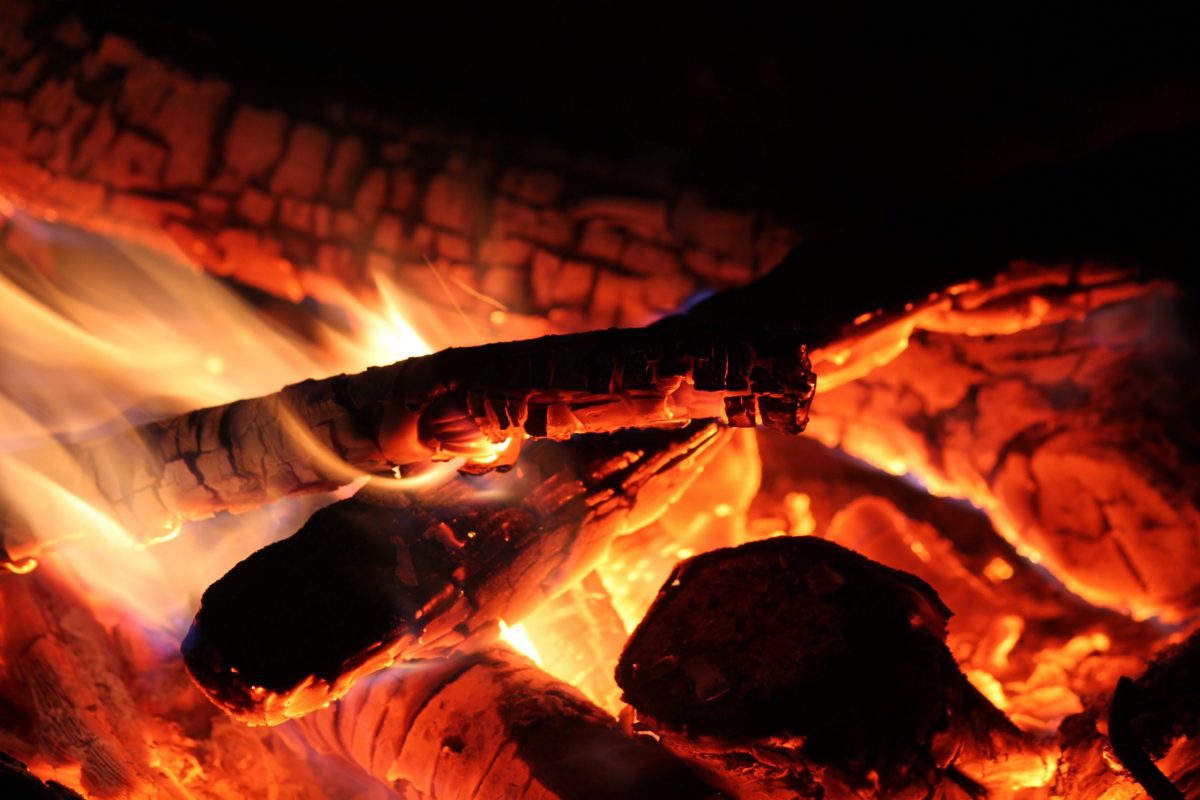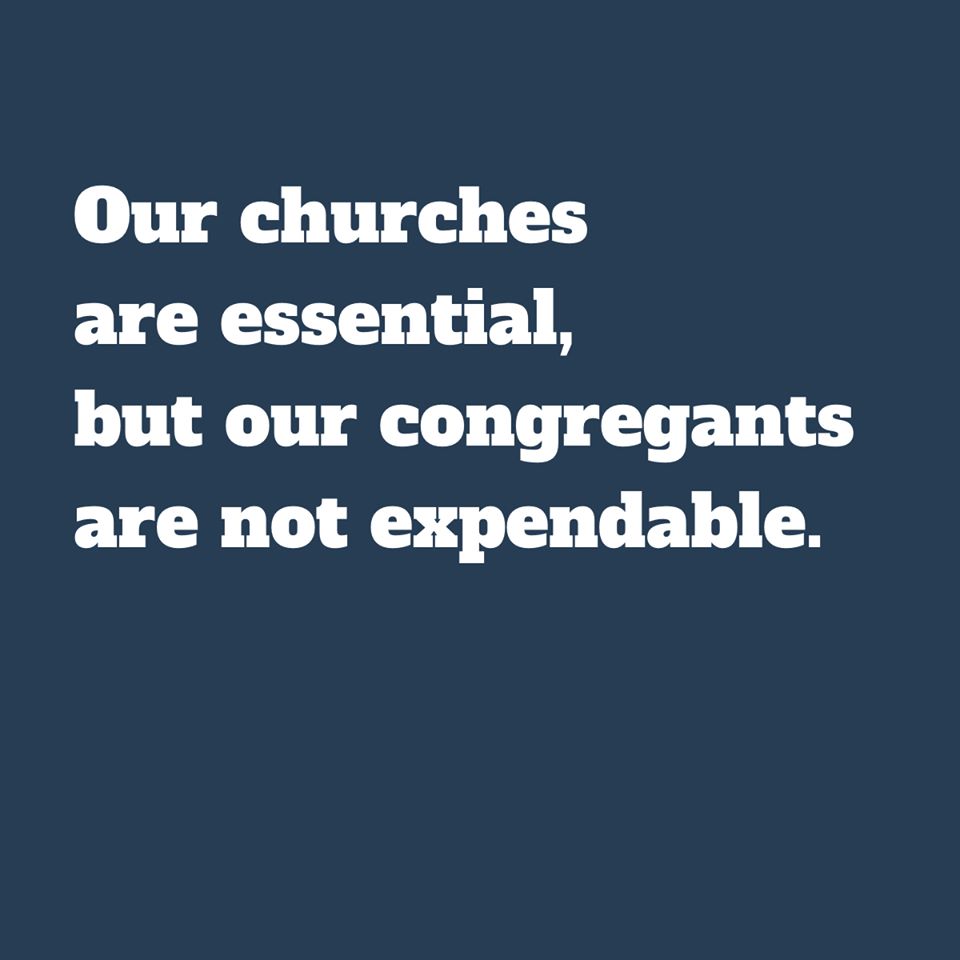A Prayer for Burning Grace: Protocols & Pentecost by Elizabeth Glass Turner

Pastors and denominational leaders face tough decisions right now. The Christian faith is inherently embodied; we gather, we meet, we celebrate the Incarnation – the Word Made Flesh. For millenia, we’ve celebrated the Eucharist, finding Christ’s presence in the tangible – wine and bread, a burning grace.
The Christian faith is also inherently self-sacrificial; we mend, we serve, we search out the vulnerable, we protect, we value. We “look out not only for (our) own interests, but also for the interests of others,” being told, “let this mind be in you which was also in Christ Jesus…” who “took the form of a servant.” (Phil. 2) Early Christians rescued abandoned babies on hillsides and cared for their own plague-stricken members as well as caring for poor members of the Empire (to the Empire’s chagrin).
In gathered worship or scattered and serving, Christians have been told that whatever we do, we should do with good cheer. Rejoice in worship, rejoice in giving. Rejoice in getting together, rejoice in serving others. Grumbling is apparently not a Fruit of the Spirit. We value creation; and we show it by serving.

The Body of Christ is essential even if meeting together is interrupted. Churches are essential insofar as the Body of Christ is essential; but access to church buildings is not an absolute, essential piece of the puzzle. While the Body of Christ, existing in the life of congregations, is essential, congregants are not expendable. We are a people who value life and promote its flourishing.
The Christian faith is inherently embodied; but it is also inherently self-sacrificial. And so many face tough decisions. Leaders of all denominations have an opportunity to take strain off of individual clergymembers by continuing to create contingency plans and best practice protocol:
plans, practices, and protocol that cheerfully look out for the value and dignity of each church member and potential visitor.
When the strain is greatest, let’s continue to forge ahead with creative resilience.
By doing so we march hand in hand with the midwives of Egypt, who protected vulnerable newborns at risk to their own lives, thwarting the easy call of casual contempt, by the burning grace of God.
By doing so we march hand in hand with Moses and Miriam, called to distance from the land of their upbringing, caught between warriors and water, carried to the other side on dry land by the burning grace of God.
By doing so we march hand in hand with Elijah, who poured water on his altar, making sure every single witness knew that it was only God who could make the fire fall, watching the revelation of God crack the sky, vindicated by the burning grace of God.
By doing so we march hand in hand with Esther, who found herself vulnerable in halls of influence and power, carried by the urgent encouragement of one who saw clearly the stakes for a whole people group. She found favor with the powerful, toppling corrupt schemes and protecting the innocent by the burning grace of God.
By doing so we march hand in hand with Shadrach, Meshach, and Abednego, who found themselves caught in the crucible but discovered in it the presence of a fourth – “I see a fourth man, who looks like the Son of God” – rescued from the inferno by the burning grace of God, not even smelling like ash.
By doing so we march hand in hand with Paul, who cried out in his letter to his fellow church members in Philippi how much he longed to see them face to face, person to person; how intently he prayed for them, by the burning grace of God.
By doing so we march hand in hand with John Wesley, who as a child was rescued by community members during a roaring house fire, grabbed from a window, a “brand plucked from the flames.” His early memories were seared by other people sacrificing in order to protect him; later he experienced his very soul being warmed, not by trauma but by the burning grace of God.
We have nothing to fear from closed doors; we have everything to fear from closed hearts.
Our hope is not in “business as usual,” our hope is in the fourth man, who looks like the Son of God, wandering around casually in the crucible with us – the Ascended Christ.
Our hope is not in the Pentecost banners we’re accustomed to seeing in church sanctuaries, our hope is in the Holy Spirit, who descended on believers – only to scatter them.
In this moment we still have a choice of what we are going to be: a dead, rotted stump of former things, or potent seed bursting with latent life, willing to live scattered by the Spirit.
By the burning grace of God, we pray, Christ Ascended, that you will char away our bent to dry rot; scatter us like fresh, powerful seed, holding the promise of fruit we can only imagine, because it is only possible through the radiance of your Holy Spirit.
We do not like feeling scattered, God; we would rather stay close to each other.
Remind us that You are enough.
Remind us that you bind the stretches of the universe together and you bind us together, too.
Remind us that your Holy Spirit is faithful to keep us sensitive to each others’ needs if we will listen to Your Spirit who binds us together.
You are not just God who sustains gravity; you are God who knits with quantum entanglement for fun. Entangle our spirits with Your Holy Spirit, like particles that, “cannot be described independently from the state of the others even when separated by large distances;” entangle our hearts with each other.
Christ Ascended, in you we find wholeness; Holy Spirit, entangle those of us who feel distanced, lonely, despairing, afraid.
By the burning grace of God, keep us from being overwhelmed by distancing; sustain us with Pentecost entanglement that scatters and connects at the same time.
Through Christ our Lord, the only open door we need – Amen.